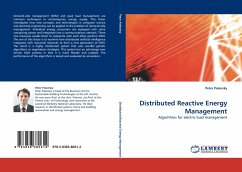Demand-side management (DSM) and peak load management are common techniques in contemporary energy supply. This thesis investigates how new concepts and technologies in computer science and electrical engineering can be applied to the problem of demand-side management. Individual energy consumers are equipped with some computing power and integrated into a communications network. These two measures enable them to cooperate with each other perform DSM. The aim of this thesis is to examine how distributed artificial intelligence integrates with industrial networks to form a new generation of DSM. The result is a highly distributed system that uses parallel genetic algorithms or negotiation strategies. This system has an advantage over former DSM systems in that it is more flexible and scalable. The performance of the algorithms is tested and evaluated by simulation.
Bitte wählen Sie Ihr Anliegen aus.
Rechnungen
Retourenschein anfordern
Bestellstatus
Storno








